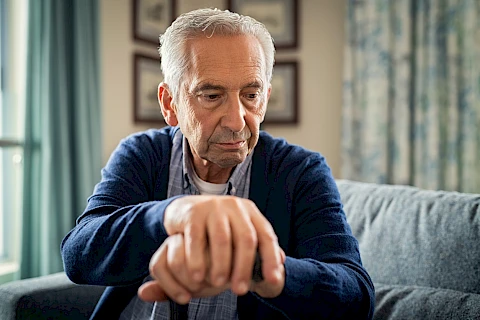
May is Mental Health Awareness Month, a time to highlight issues often overlooked, under-reported, or even swept under the rug. Depression can be particularly challenging to identify in seniors. Compounded with the experiences of military service, it can profoundly affect their well-being. Recognizing depression signs in senior veterans ensures they receive the support and care they deserve.
Depression in Senior Veterans: What They're Up Against
Depression is a common but serious disorder that affects how you think and feel and how you handle daily activities. For senior veterans, the experience of depression might be somewhat different. Many have served in combat, seen friends injured or killed, and been in life-threatening situations. These harrowing experiences, coupled with the natural process of aging, can lead to feelings of depression.
Common Signs of Depression in Senior Veterans
Senior veterans often exhibit depression symptoms differently compared to the general population, making early detection essential.
Feelings of Guilt
Individuals may demonstrate feelings of extreme guilt. This may stem from survivor's guilt, a profound sense of responsibility or remorse for surviving when comrades did not. Veterans may experience regret over actions taken during their service or difficult decisions made in the heat of combat.
Isolation
Another significant sign of depression is isolation. For many veterans, the transition from military to civilian life can be challenging, leading to feelings of disconnect or alienation from society. Many veterans withdraw from social life, a behavior change that can be a sign of underlying issues.
Other Telltale Signs of Depression
Other signs include sadness or hopelessness, loss of interest in activities, difficulty sleeping or oversleeping, lack of energy, and difficulty concentrating. Changes in appetite leading to weight loss or gain can also be an indicator. Notably, while these signs appear in general cases of depression, they can be more intense and occur in a compounded way for senior veterans.
Providing Support for Senior Veterans
Emotional support is a lifeline for senior veterans grappling with depression. Encouraging open conversations about their feelings can create a safe space that may help them open up about their struggles.
Places like veteran community centers, senior support groups, and mental health clinics can provide essential support. Nationally, organizations like the Department of Veterans Affairs offer specialized mental health resources for veterans.
Professional help is vital. Treatments range from talk therapy to medication. Often, a combination of treatments works best. Mental health professionals can customize treatment plans to suit individual needs, aiding recovery.
Add Senior Helpers to Your In-Home Care Team
Our senior veterans have given so much for our country, and there’s no better way to reciprocate this than by providing them the support and care they deserve, especially in the face of depression.
Seniors in Whittier, Downey, Pico Rivera, or Bell Gardens looking for additional support at home can contact us at Senior Helpers Whittier-Downey. Our professional in-home care and companionship team is committed to providing compassionate, expert care to seniors of all backgrounds. Let us be your trusted partner in maintaining independence and enhancing your quality of life in your golden years!